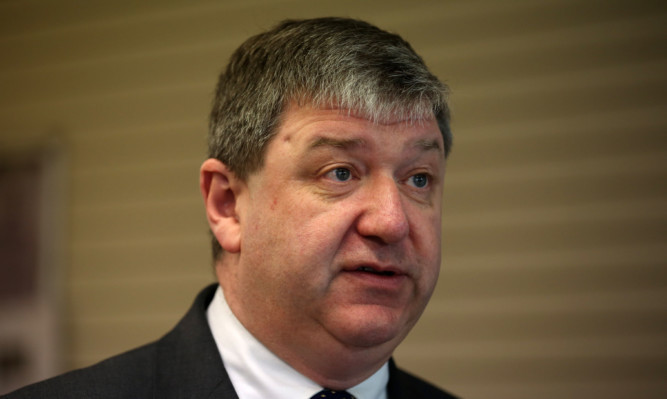Judges have set a date to hear evidence in a legal challenge to the election of former Scottish secretary Alistair Carmichael.
A four-day Election Court hearing will take place at the Court of Session buildings in Edinburgh from November 9.
Four of Mr Carmichael’s constituents, known as the petitioners in the case, have launched a bid to oust him after he admitted allowing the leak of a confidential memo which wrongly claimed First Minister Nicola Sturgeon wanted David Cameron to remain in Downing Street at May’s general election.
Lady Paton and Lord Matthews today ruled that the next stage of proceedings could take place in the capital rather than in Mr Carmichael’s Orkney and Shetland constituency.
Evidence given by witnesses will not be broadcast live as with earlier legal hearings, but submissions from each side in the case will be televised, they said during a procedural hearing at the court.
Lady Paton said: “The next stage of the trial comprises first evidence and witnesses and productions and second submissions.
“We are minded … to permit live broadcasting of the submissions, including all references to what witnesses have said.”
Lady Paton said questioning of witnesses would be “more adversarial than inquisitorial” with the possibility of “serious consequences” following the court hearing.
The presence of cameras would “create a risk to the proper administration of justice”, she said.
The judge added: “We are content that special circumstances have been shown and that the next stage of the trial should take place in Edinburgh.”
Mr Carmichael’s legal team has been given until October 26 to lodge a list of witnesses they intend to call, which could include the MP.
Jonathan Mitchell QC, representing the petitioners, told the court: “I assume that they are calling him.
“Beyond Mr Carmichael it’s not apparent to me that there is any other useful evidence that could be led on the respondent’s side.”
In a Channel 4 interview, Mr Carmichael initially denied having prior knowledge of the memo leak, which emerged around a month before voters went to the polls.
Following a Cabinet Office inquiry he admitted he had allowed his special adviser Euan Roddin to release details of the document which appeared in the Daily Telegraph on April 3.
The petitioners argue his actions call into question his integrity as an individual and his suitability to represent the constituency at Westminster.
Their action has been brought under Section 106 of the Representation of the People Act 1983.
It states that “a person who … before or during an election, for the purpose of affecting the return of any candidate at the election, makes or publishes any false statement of fact in relation to the candidate’s personal character or conduct shall be guilty of an illegal practice”.
At earlier hearings Mr Carmichael’s legal team asked the judges to throw out the case.
His counsel Roddy Dunlop QC argued that Section 106 should not apply to “self-talking”, in this case the candidate making a false statement about himself rather than attacking someone else.
But last month the judges said they wanted to hear evidence in the case.
They ruled that the language used in Section 106 was “wide enough to encompass a statement made by a candidate about himself”.
The judges also concluded that the law could apply “whether the statement can be regarded as attacking and vilifying or as praising and laudatory”.
The court will now hear evidence on whether Mr Carmichael’s statement amounted to “false statements of fact” about his own personal character or conduct and whether they were uttered for “the purpose of affecting the return of any candidate at the election”.
